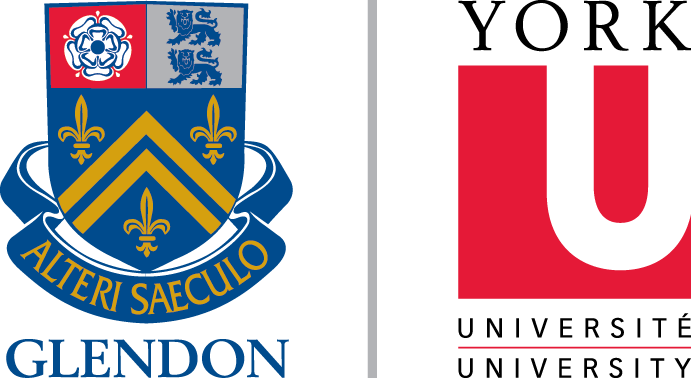 What will instructional programs at Glendon College look like over the coming years? Is the College thinking about changing its “liberal arts college” focus, its concentration on the humanities and social sciences?
What will instructional programs at Glendon College look like over the coming years? Is the College thinking about changing its “liberal arts college” focus, its concentration on the humanities and social sciences?
For answers to these questions, the College’s E-magazine interviewed Jerzy Kowal, Associate Principal, Academic and Research.
When we look at the range of programs at Glendon, we can clearly see that the College is a liberal arts college, an institution devoted to teaching and research in the humanities and social sciences. Is there a move to change that focus?
JK: Since it was founded, Glendon has always been a “liberal arts” college. Maybe at that time, the definition of liberal arts college was fairly limited but for us, it simply means the humanities and social sciences, and that will not change.
Glendon defines itself, rightly, as “bilingual and francophone”. How does that help Glendon position itself in the world of higher education in Toronto or southwestern Ontario ?
JK: There are 2 answers to that. First, putting the language issue on one side for a moment, Glendon as a university faculty is a small institution in an appealing setting. Being a small college is very attractive in southern Ontario, because the other universities are fairly large. Here, I know all the students by name and often, I know their problems; it is practically a family. The same is true for employees. Second, there is Glendon as a bilingual and francophone institution. Right now, we are the only university of this type in southwestern Ontario. So, we serve francophone clients if they want to study in French. At Glendon, what is very nice is that the education is bilingual and you cannot do a degree in a single language. You have to have taken courses in both of the country’s official languages. That is completely unique.
One of Glendon’s assets is its ability to attract anglophone high school graduates who are “francophiles” (or bilingual), and francophone students from Ontario and even Quebec. What do you plan to do with the instructional programs to increase Glendon’s attraction?
JK: There are still many programs we could offer. But that all brings us back to the question of money. With provincial government support, we can offer more programs. These new programs, given the College’s mandate, will still have to be bilingual. In this regard, offering courses themselves is not very complicated because most often, our professors speak at least two languages. What could be problematic, for example in sociology, is that the approaches to teaching sociology are different in French and English. Personally, that is where I see problems. As well, everything from course descriptions to promotional brochures has to be in both languages. There are two different clienteles and the documents have to be written differently, which requires staff with mastery of both languages to do the writing. Bilingual means that everything is always doubled.
Does Glendon College, because of its bilingual and francophone mandate, receive specific assistance from the Ontario government?
JK: The Ontario government already recognizes the College’s francophone component by giving Glendon some funding to be able to offer courses in French to a number of students which is lower than what we would need to offer courses in English. There is some support: we have to acknowledge and recognize it.
For all your programs, how do you envisage their future development (postgraduate development, distance education, continuing education, etc.)?
JK: In order to grow, we have to attract more students and therefore have a broader range of programs. Often, what happens is that the labour market needs a certain new profession. The university is going to have to anticipate these future job creations. What students learn here through the liberal arts is a critical faculty, an analytical faculty and an open-minded, outward-looking attitude. Our students will have the general training required for any job. As for job-specific training, they will always be able to take a few specialized courses or the company will provide them. So, we are reviewing what we offer so as to work to our strengths, to develop those strengths even further, resulting in new programs.
What is also new is that the Ontario government wants universities to collaborate with colleges. That opens up new opportunities for one-semester “bridging” programs, for example, an introductory or preparatory program so that college students can continue on to university.
As for distance education, not all programs lend themselves to that form of teaching. At Glendon, what works really well is the translation program. We have just started an online conference interpreting program. It is a Master’s program, a professional program where the first year is taken exclusively online, meaning that students can come from anywhere in Canada or around the world. However, the second year has to be done on site, in the classroom.
Are there any new disciplines you want to develop, specifically to expand our range of humanities programs and attract more students?
JK: In the context of our collaboration with colleges and bridging programs, we are thinking, for example, about everything involving communication, where we already have expertise. We already have a number of certificates in communication, in professional writing. Based on our strengths, we could think about developing communication programs that we do not have yet.
And to conclude…
JK: At Glendon, since we are small and know our strengths, it is always a little easier to anticipate the future. And that is the beauty of a small college like Glendon because here too, we have room to grow. That is why the job of Associate Principal, Academic and Research is a very nice job, because there are so many things we can still do!
Thank you very much!
Comments collected and edited by Michel Héroux


